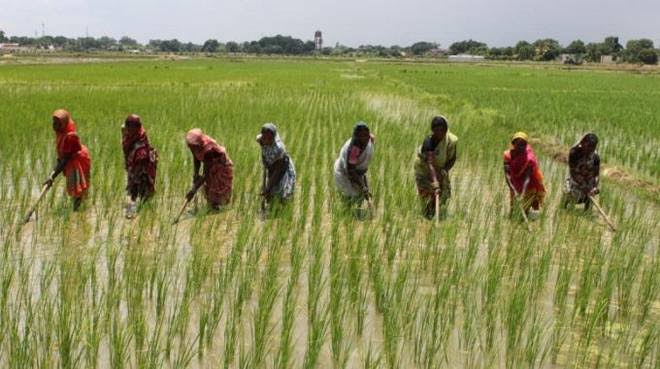By David Oluwaseun
The Federal Government has expressed concerns over the incessant conflict between farmers and herders in sub-Saharan Africa, stating that it was threatening food security in Nigeria.
It said that it was high time crop farmers and herders co-exited peacefully, stressing that the conflict between both groups had dragged on for too long.
The Minister of Agriculture and Rural Development, MahmoodAbubakar, said this in Abuja at the Regions Summit on Human and Climate Security Challenges and Farmer-Herder Conflict Resolution in the Livestock Sector.
The summit was jointly organised by the Federal Ministry of Agriculture and Rural Development, the United Nations Development Programme and the Food and Agricultural Organisation of the United Nations. Its theme was, ‘Promoting Peace and Climate Security in the Crop and Livestock Farming Sectors.’
In his address at the event, Abubakar said, “The summit became necessary as it provides the opportunity for dialogue and discourse on the way forward for achieving peaceful coexistence between crop farmers and livestock herders whose incessant conflict in the region is threatening food and national security in Nigeria.
“Farmer-herder conflict predates the existence of Nigeria as an independent, sovereign nation. It is a conflict that the previous and current generations of farmers and herders, especially rural dwellers have come to know and managed properly using traditional methods.
“However, the dimensions it has taken lately call for deep introspection into unravelling the causes of the heightened, unwarranted attacks by both actors in the conflict and more innovative ways of addressing it.”
In a related development, the Central Bank of Nigeria (CBN) has expressed commitment towards national development, says its various finance interventions have improved food security in Nigeria.
The CBN director, development finance department, Yusuf Yila, stated this at the 2022 retreat for the department in Abuja.
Yila said although some people had raised concerns over the rising food inflation, the CBN interventions had saved the country from famine.
“The CBN has been at the forefront of ensuring Nigeria achieves food security in collaboration with other fiscal authorities, also stimulating growth in collaboration with ministry of industry,” Yila said.
“Food security in Nigeria has received massive boost in the last five years since the CBN intervened in the sector to curb over-reliance on imported goods.
“We have tranversed the length and breadth of Nigeria, empowering farmers and MSMEs in access to finance and agric-business and also using target credit facility. It became a comfort for households especially during the covid 19.
“For those looking at food inflation to discredit the work we have done in the development finance department, I just want to tell them that Nigeria is part of a global system, and shocks from one facet of this system have a concomitant effect in the other parts. We are not alone because we are not aliens.
“While this is hardly any comfort over the rising prices of food, had we not intervened, we could have been facing a certain food crisis and severe famine of historical proportions.
“Currently, we have developed an advanced system for linking farmers to input suppliers and providing access to the market for farm products.
“The entire agricultural value chain has seen a transformation not witnessed before, and we are certain the global headwinds, which have distorted outcomes for most economies across the world, will abate.
“Nigeria is on the path of sustainability and food security. The Development Finance Department of the Central Bank of Nigeria is committed to the goal of sustainable economic growth.
“While we are committed to making today a comfortable day to live in, we are also minded on sustainable development which is defined as “the development which meets the needs of today without compromising the ability of future generations to meet their own needs”.
Aishah Ahmad, deputy governor, financial system stability directorate of the apex bank, also expressed concerns over the poor repayment of loans provided by the bank.
She urged beneficiaries of the CBN loans to pay back in order to enable others to benefit from the interventions.
“In recent years, the efforts and interventions of the CBN have ushered in a lot of growth and impact. It helped us combat extreme poverty, food insecurity and grow the agricultural sector and manufacturing base,” Ahmad said.
“But it also brings in considerations, and we are well aware of these considerations. Of course, the most obvious is the risk of poor recovery rate on some of the loans we give out, which may be a burden on the institution, but most importantly may affect the sustainability of our initiatives.
“We also try to empathise with all stakeholders that all of these are loans and not grants. It is important you pay back so that others can also get the same opportunity.”
The CBN said it had disbursed N9.714 trillion through various intervention funding programes across several real sector industries.
According to the bank’s development finance department (DFD) report made available at the retreat, the manufacturing/industry sector had the highest allocation of 32.6 percent, followed by energy/infrastructure and agriculture with 23.1 percent and 22.8 percent allocations, respectively.













